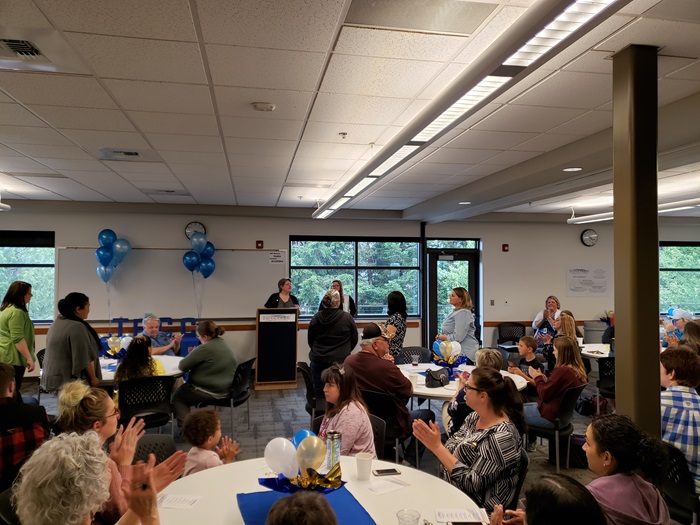Overview

Ever wonder why so many people are living in the streets? Protesting in the streets? Ever been curious about why dating has moved online? Ever asked why college tuition has gone up so much? Or why and how race shapes our lives? Sociology offers us tools for asking deeper questions about our society and ourselves. Sociology is the study of the relationship between humans and society. Students examine how economics, politics, religion, race, gender, family and the environment interact to shape people's lives. Students will learn to analyze social problems such as poverty, war and drugs to discover their causes and possible solutions. Possible courses include Race, Class and Ethnicity; Social Psychology, and Social Deviance. Sociology prepares you for employment in social service, recreation, teaching, and preparation for pre-professional studies. The Associates of Arts degree requires two years of college language (or the equivalent) and prepares students for a Bachelor’s of Arts degree rather than a Bachelor’s of Science degree.
Click for Major Transfer Map (MTM) PDF.
Program Learning Outcomes
Meets General Education Requirements
In addition to Institutional Learning Outcomes, standards have been established for Student Learning Outcomes in General Education Courses in the following categories: Arts and Letters, Cultural Literacy, Mathematics, Science or Computer Science, Social Science, Speech and Oral Communication, Writing, and Information Literacy. Coursework in each of these areas supports student achievement of these outcomes. TBCC evaluates student achievement of course learning outcomes on a regular basis, and this information is used for continuous improvement in instruction and student services.
Arts & Letters
Outcomes
As a result of taking General Education Arts & Letters* courses, a student should be able to:
-
Interpret and engage in the Arts & Letters, making use of the creative process to enrich the quality of life; and
-
Critically analyze values and ethics within a range of human experience and expression to engage more fully in local and global issues.
-
*“Arts & Letters” refers to works of art, whether written, crafted, designed, or performed and documents of historical or cultural significance.
Cultural Literacy
Cultural Literacy outcomes will be included in courses that meet the outcomes and criteria of an AAOT Discipline Studies requirement.
Outcomes
As a result of taking a designated Cultural Literacy course, a student should be able to:
Mathematics
Outcomes
As a result of taking General Education Mathematics courses, a student should be able to:
-
Use appropriate mathematics to solve problems: Recognize which mathematical concepts are applicable to a scenario, apply appropriate mathematics and technology in its analysis, and then accurately interpret, validate, and communicate the results.
-
Use logical reasoning to make connections between various mathematical concepts and representations.
Science or Computer Science
Outcomes
As a result of taking General Education Science or Computer Science courses, a student should be able to:
-
Gather, comprehend, and communicate scientific and technical information in order to explore ideas, models, and solutions and generate further questions;
-
Apply scientific and technical modes of inquiry, individually, and collaboratively, to critically evaluate existing or alternative explanations, solve problems, and make evidence-based decisions in an ethical manner; and
-
Assess the strengths and weaknesses of scientific studies and critically examine the influence of scientific and technical knowledge on human society and the environment.
Social Science
Outcomes
As a result of taking General Education Social Science courses, a student should be able to:
-
Apply analytical skills to social phenomena in order to understand human behavior; and
-
Apply knowledge and experience to foster personal growth and better appreciate the diverse social world in which we live.
Speech/Oral Communication
Outcomes
As a result of taking General Education Speech/Oral Communication courses, a student should be able to:
-
Engage in ethical communication processes that accomplish goals;
-
Respond to the needs of diverse audiences and contexts; and
-
Build and manage relationships.
Writing
Outcomes
As a result of completing the General Education Writing sequence, a student should be able to:
-
Read actively, think critically, and write purposefully and capable for academic and, in some cases, professional audiences;
-
Locate, evaluate, and ethically utilize information to communicate effectively; and
-
Demonstrate appropriate reasoning in response to complex issues.
Information Literacy
Information Literacy outcomes and criteria will be embedded in the Writing Foundational Requirements courses.
Outcomes
As a result of taking General Education Writing courses infused with Information Literacy, a student who successfully completes should be able to:
-
Formulate a problem statement;
-
Determine the nature and extent of the information needed to address the problem;
-
Access relevant information effectively and efficiently;
-
Evaluate information and its source critically; and
-
Understand many of the economic, legal, and social issues surrounding the use of information